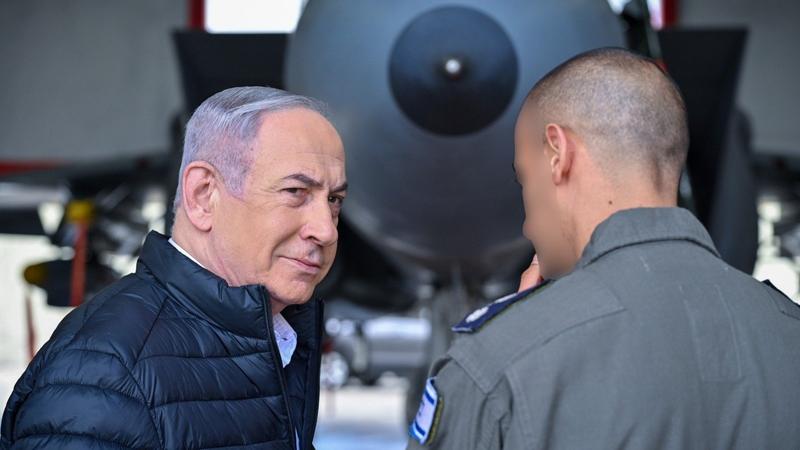Published 23:59 IST, September 28th 2024
Why Netanyahu Didn’t Inform US About His Plans To Strike Hassan Nasrallah?
Prime Minister Benjamin Netanyahu reportedly chose not to inform the Biden administration in advance, fearing the US would try to prevent the operation.

In the days leading up to the airstrike that killed Hezbollah leader Hassan Nasrallah, Israeli Prime Minister Benjamin Netanyahu reportedly chose not to inform the Biden administration in advance, fearing the U.S. would try to prevent the operation. According to a report by Channel 12, Netanyahu expressed concerns that informing the U.S. ahead of time could lead to diplomatic pressure to halt the mission.
This information is crucial because after the strike, US president Joe Biden said that the assassination of Nasrallah “is a measure of justice for his many victims”.
It appears that the Israeli leaders, don't trust the US, and perhaps Biden's statement, will also be viewed skeptically, in Israel. Over the course of the past year, whilst U.S. has supported Israel, it has also sough to control Israel's response.
Here is what you need to know
The Friday strike in Beirut, which targeted Nasrallah and other Hezbollah leaders, was a significant escalation in the ongoing conflict between Israel and Hezbollah. Defense Minister Yoav Gallant had urged Netanyahu to approve the strike and was reportedly unconcerned about withholding the information from Washington.
Israel’s decision to give only a last-minute warning to the U.S. after the operation had already been executed angered Biden administration officials. In response, Israel conveyed a message attempting to justify its decision. Channel 12 reported that the message included the rationale, "We might have missed the opportunity. We didn’t want you to be [deemed] responsible by knowing ahead of time." It also emphasized that the operation was not just against Hezbollah but the broader "Shiite axis."
Furthermore, Israel assured the U.S. that it was ready for diplomatic talks to resolve tensions in the north, though it made clear that any negotiations would happen "under fire". In other words, Israel won't halt its strikes on Hezbollah targets.
This development underscores the delicate balance Israel faces in maintaining its security interests while managing its relationship with the U.S., its most critical ally.
Updated 01:07 IST, September 29th 2024




